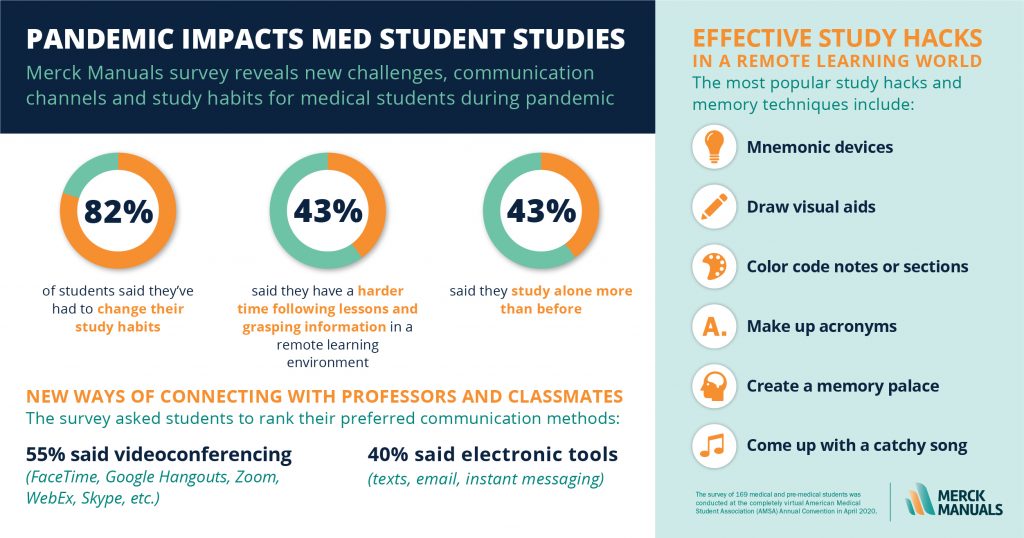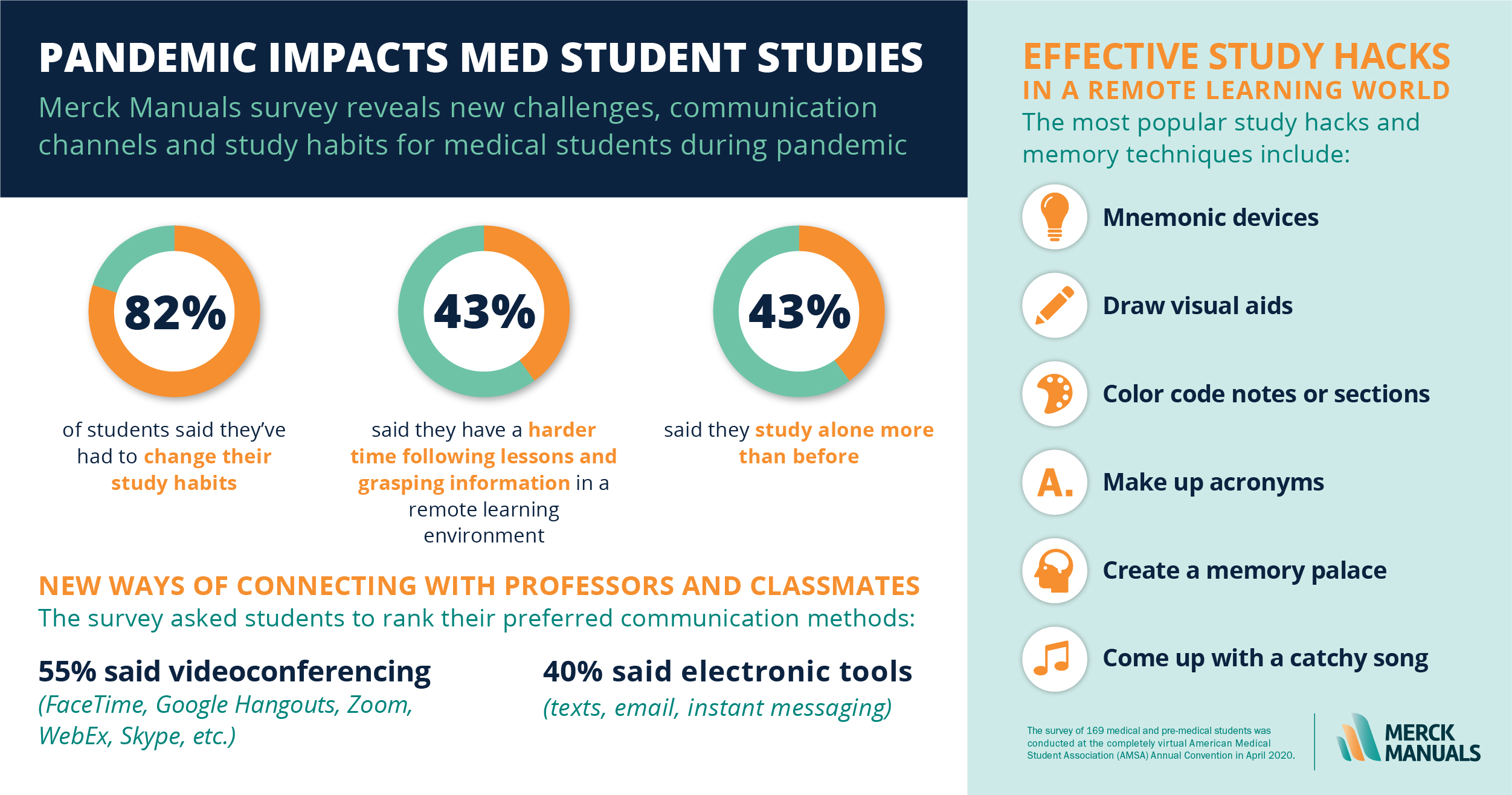By: The Merck Manuals Editorial Staff
AMSACon2020 was a little different than conferences in previous years. Given the realities of the ongoing COVID-19 pandemic, this year’s conference was entirely virtual – the first of its kind. Students, medical professionals, leading medical institutions found new ways to connect and learn.
But COVID-19’s impact on medical students goes beyond virtual conference sessions and keynote speakers. A survey conducted by the Merck Manuals, a trusted medical resource offering professional and consumer editions in print, online at MerckManuals.com and via mobile apps found that eight in ten AMSA attendees said the pandemic is impacting their study habits. Online classes are changing how students learn and the tools they rely on to communicate and master key medical information.
For many of the premed and med students surveyed, it’s been a real challenge. Four in ten students said they have a harder time following lessons and grasping information in a remote learning environment, and 43 percent said they study alone more than ever before. Just 15 percent said remote learning makes it easier to focus on learning.
In a virtual world, connections remain critical
Premed classes and medical school are defining challenges in the careers of many physicians and healthcare professionals. Students get through classes by relying on their fellow classmates, instructors and mentors. As schools transition to remote learning, finding ways to maintain these connections is more important than ever. The Merck Manuals survey asked students which digital tools they’re relying on most.
- 55% said videoconferencing (FaceTime, Google Hangouts, Zoom, WebEx, Skype, etc.)
- 40% said electronic tools (texts, email, instant messaging)
- 5% said verbal correspondence (phone calls)
AMSA’s virtual conference demonstrated how digital platforms can be used to maintain connections between students, leaders and institutions and even forge new ones. When it comes to learning, many students appear to still be developing their virtual study habits. Thirty percent of AMSA survey respondents said they study alone but regularly check in with classmates and professors, but just eight percent said they regularly study with classmates in virtual groups using online communication technologies.

Offline resources remain a necessity for all medical professionals
There’s no doubt our reliance on remote tools and online learning has seen a major uptick in recent months. Still, medical students can’t be totally connected all the time. The Merck Manuals asked students what they do if they don’t have internet access or are struggling with spotty service. Most (70%) download and save documents, 61% relied on textbooks, more than half (56%) review personal notes or notecards while some (20%) use offline apps, and 17% say they can’t study without internet access.
The ability to access reliable medical information at all times, even without an internet connection, remains critical. Physicians and all healthcare professionals must access the information they need to effectively treat patients. That’s why the Merck Manuals has made the trusted and reliable medical information in its consumer and professional apps available for download and offline viewing. Healthcare practitioners, medical students and consumers can access the Merck Manuals resources without a WiFi or data connection.
Students reveal their top study hacks
As students adapt to new learning channels, many are turning to tried-and-true study techniques to help them remember and better understand key medical information and concepts. According to the Merck Manuals survey, here are the most popular study hacks and memory techniques for pre-med and med students today:
- Mnemonic devices (75%)
- Draw visual aids (67%)
- Color code notes or sections (51%)
- Make up acronyms (50%)
- Create a memory palace (25%)
- Come up with a catchy song (9%)
At the same time, all students said they still rely on notetaking as a study strategy, and a vast majority said they use videos (98%), practice tests (94%) and prioritizing more challenging topics (63%) as study tools.
Like AMSA, the Merck Manuals is committed to helping medical students navigate an increasingly remote world. The Merck Manuals team is continuously seeking feedback from all corners of the medical community to understand how best to expand the resources it provides to ensure students, healthcare professionals and patients have the knowledge and information they need to make the best-informed medical decisions.


